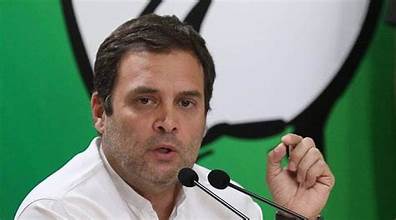Rahul Gandhi : In a recent escalation of political discourse in India, Congress leader Rahul Gandhi has openly criticized the Central Government over the implementation of new hit-and-run laws and the ensuing protests by truck drivers nationwide. His statements have sparked a renewed debate on the intersection of law-making, democracy, and the rights of working-class citizens, particularly those in the transportation sector.
Gandhi, in a statement on social media platform ‘Social Media X’, expressed deep concerns over the government’s approach to law-making. He emphasized the lack of discussion with affected parties and the absence of dialogue with the opposition, terming it a continuous attack on the soul of democracy. This criticism comes at a crucial time when over 150 Members of Parliament were suspended, a move Gandhi described as dictatorial, especially in the context of passing legislation that could have dire consequences for the Indian economy and its drivers.
Gandhi’s critique centers on the new provisions in the Indian Penal Code, which replace the older codes, introducing stringent punishments for drivers causing serious road accidents due to negligence and fleeing the scene without informing police or administration. Under these provisions, guilty drivers could face imprisonment of up to ten years. Gandhi argues that such harsh legal measures could unfairly impact the already limited earning capacity of the hardworking class, namely the drivers. Furthermore, he warns that these laws could open avenues for organized corruption and extortion.
The truck drivers’ protests across various states of India are a direct response to these new legal provisions. These demonstrations reflect the growing unrest among the driver community, who view these laws as disproportionately harsh and potentially exploitative. The protests are not just about the new penalties but also a broader issue of how laws are being made and implemented without adequate representation or consideration of the stakeholders’ perspectives.
Gandhi’s remarks shed light on a larger issue within the Indian democratic framework. His assertion that the government is wielding laws like a whip, failing to differentiate between autocratic decrees and judicial fairness, points to a potential crisis in the democratic process. It raises essential questions about the balance of power, the role of the opposition in a democracy, and the government’s responsibility to its citizens, especially the marginalized and working classes.
The impact of this new legislation on the Indian transportation sector, a crucial component of the country’s economy, cannot be understated. Truck drivers are the backbone of the supply chain and logistics in India. The imposition of severe penalties without a proper support system or remedial measures could lead to significant disruptions in this sector. It may also result in a chilling effect on the workforce, where drivers might be deterred from taking up jobs due to the fear of severe legal repercussions for mistakes or accidents.
In response to Gandhi’s criticism and the drivers’ protests, the government’s stance remains to be seen. There is a growing call for a more inclusive and empathetic approach to law-making, one that considers the practical implications of such laws on the lives of ordinary citizens. This situation demands a delicate balance between ensuring road safety and safeguarding the rights and livelihoods of those who drive India’s economy – quite literally.




